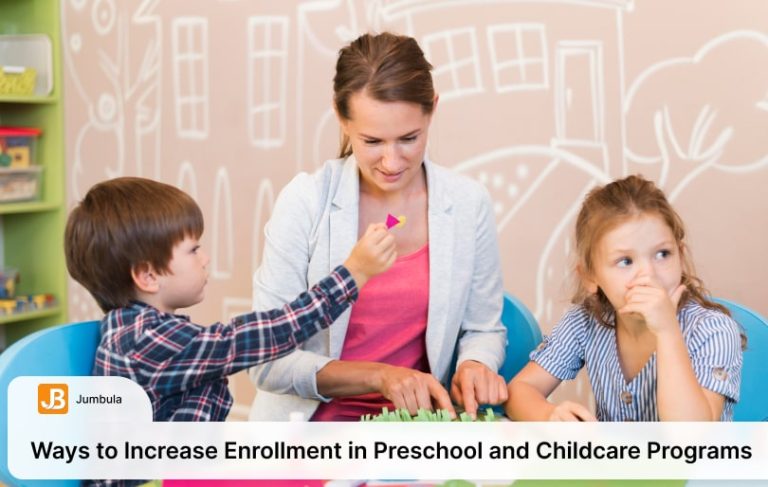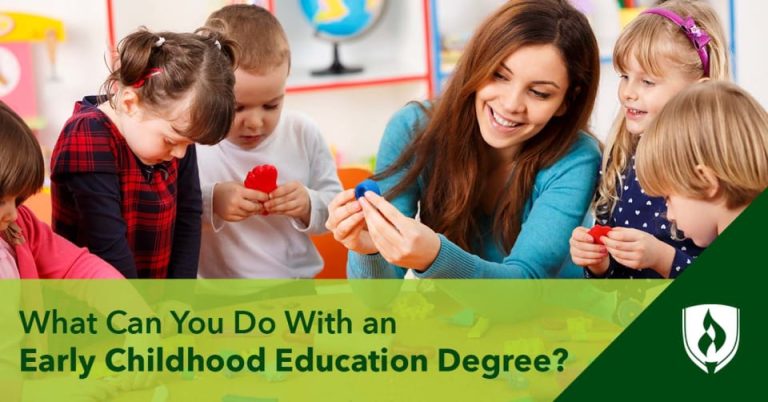What is a Degree in Early Childhood Education: Your Path to Shaping Young Minds
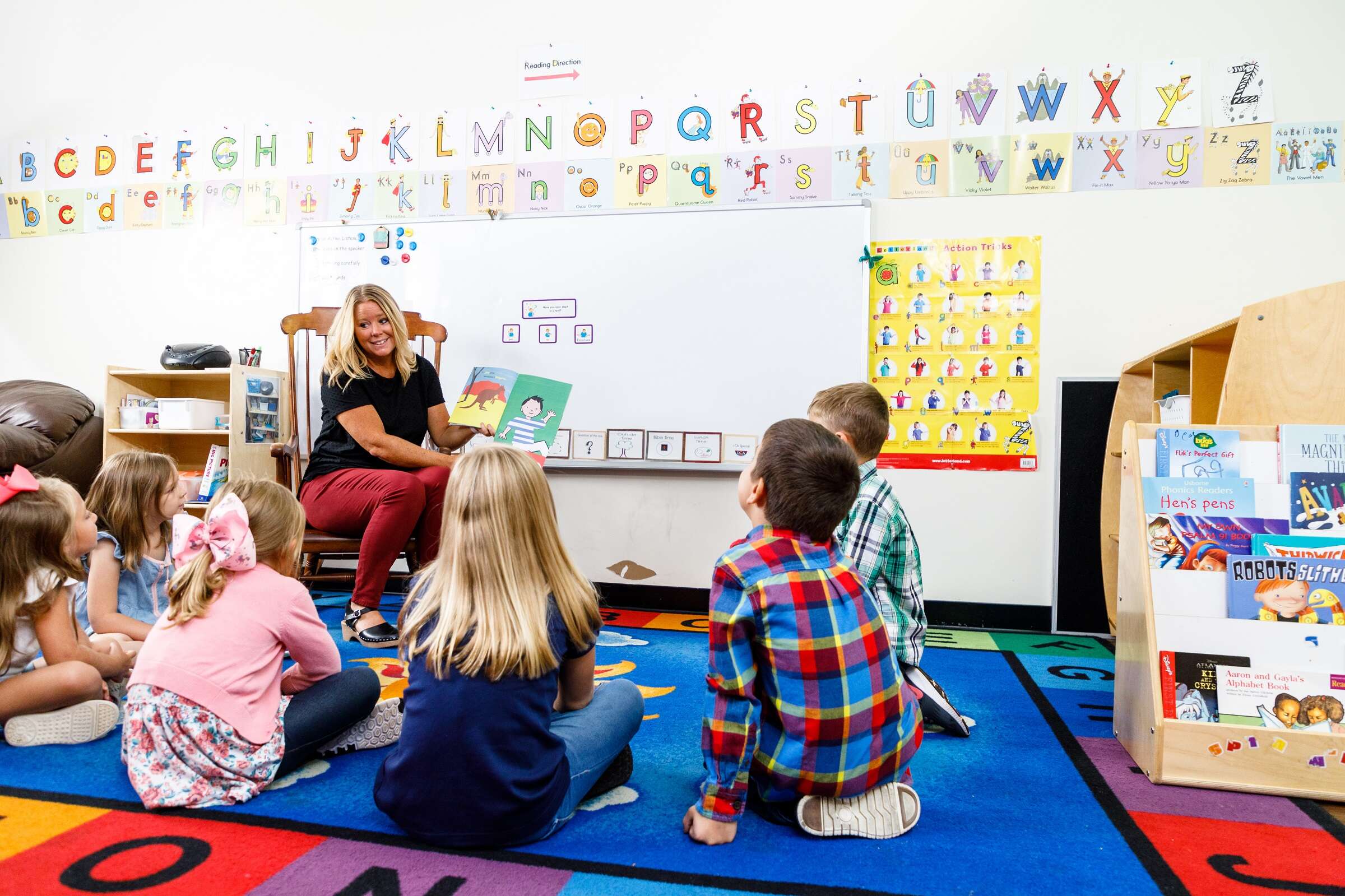
A Degree in Early Childhood Education focuses on preparing individuals to work with young children. It covers child development and educational strategies.
Embarking on a career in Early Childhood Education can be rewarding and fulfilling. As a field dedicated to nurturing the growth and development of young children, a degree in this area equips individuals with the necessary knowledge and skills to provide quality care and education to children during their formative years.
Through a combination of theoretical learning and practical experience, graduates gain insights into child psychology, teaching techniques, and curriculum development tailored to the unique needs of young learners. This degree opens up a range of opportunities in various educational settings, such as preschools, daycare centers, and elementary schools, where professionals play a crucial role in shaping the future generation.
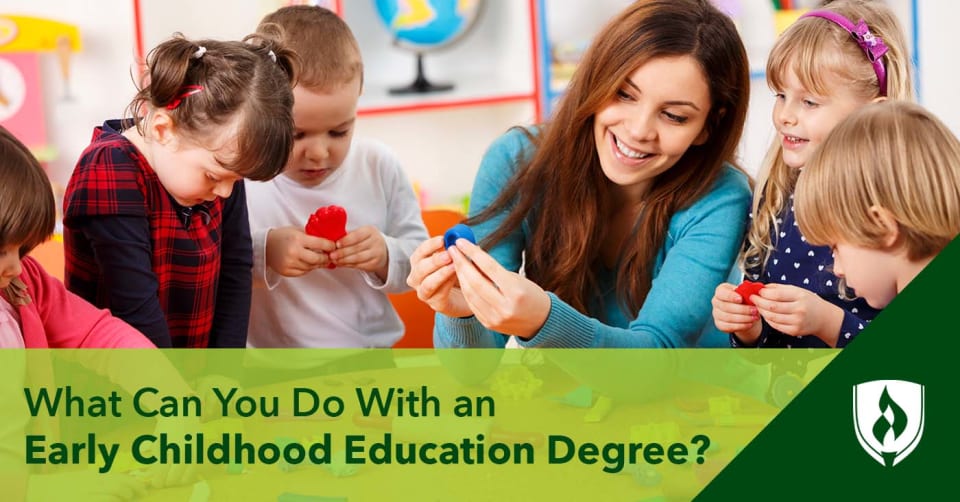
Credit: www.rasmussen.edu
The Importance Of Early Childhood Education
Early childhood education plays a pivotal role in laying the foundation for a child’s lifelong learning and development. It encompasses a range of experiences designed to support and enhance the cognitive, social, emotional, and physical development of young children. A degree in early childhood education equips individuals with the knowledge and skills needed to create stimulating, nurturing, and safe learning environments for young children. Let’s delve into the significance of early childhood education and its far-reaching impact.
Developmental Impact
The early years of a child’s life are crucial for their overall development. Early childhood education contributes significantly to the cognitive, language, and motor skills development of children. Through purposeful play, structured activities, and interactions with educators and peers, children build the foundation for future academic success and lifelong learning.
Long-term Benefits
Investing in early childhood education yields long-term benefits for individuals and society as a whole. Children who receive quality early education are more likely to graduate from high school, pursue higher education, and secure stable employment in the future. Moreover, they exhibit improved social skills, emotional resilience, and higher levels of academic achievement, setting them on a path towards a successful and fulfilling life.
Understanding Early Childhood Education Degrees
Discover the significance of earning a degree in Early Childhood Education, equipping individuals with the essential knowledge and skills to support young learners’ development. Through comprehensive coursework and practical experiences, this degree cultivates educators who are adept in creating enriching environments and fostering children’s growth and learning.
Understanding Early Childhood Education Degrees Early childhood education degrees are designed to prepare individuals to work with young children in various educational settings. These degrees provide the knowledge and skills necessary to create a positive and nurturing learning environment for children during their formative years.Types Of Degrees
There are several types of degrees available in early childhood education, ranging from certificates to doctoral programs. The most common degrees include:- Associate’s Degree
- Bachelor’s Degree
- Master’s Degree
- Doctoral Degree
Curriculum Overview
The curriculum for early childhood education degrees typically covers a wide range of topics, including child development, educational psychology, curriculum planning, and teaching methods. Students also learn about early childhood education theories and gain practical experience through internships and fieldwork. In addition, early childhood education programs often emphasize the importance of fostering social, emotional, and cognitive development in young children. Graduates of these programs are equipped to create engaging learning experiences that promote children’s overall growth and development. In conclusion, early childhood education degrees provide a solid foundation for individuals seeking to make a positive impact on the lives of young children through education and care. Whether pursuing an associate’s, bachelor’s, master’s, or doctoral degree, graduates are prepared to contribute to the early childhood education field in meaningful ways.Career Opportunities In Early Childhood Education
Early childhood education offers a range of rewarding career opportunities that allow individuals to make a positive impact on the lives of young children. From nurturing and educating young minds to managing childcare centers, there are diverse paths to pursue with a degree in early childhood education. Let’s explore some of the exciting career options in this field.
Preschool Teacher
A preschool teacher plays a vital role in shaping the early learning experiences of young children. Preschool teachers create a nurturing and stimulating environment where children can develop social, emotional, and cognitive skills through play-based activities and structured learning. They plan and implement age-appropriate curriculum, observe and assess children’s progress, and communicate with parents to provide insights into their child’s development.
Childcare Center Director
As a childcare center director, individuals oversee the daily operations of childcare facilities, ensuring that the environment is safe, nurturing, and conducive to learning. They develop and implement policies, manage staff, handle administrative tasks, and maintain compliance with licensing regulations. Childcare center directors also collaborate with families and communities to create a supportive network for children’s holistic development.

Credit: www.besteducationdegrees.com
Skills Developed Through A Degree In Early Childhood Education
Skills Developed Through a Degree in Early Childhood Education
Obtaining a degree in early childhood education equips individuals with a diverse set of skills that are essential for effectively working with young children. The specialized coursework and practical experience involved in earning this degree help develop crucial abilities that are vital for success in this field.
Communication Skills
One of the primary focuses of a degree in early childhood education is on developing strong communication skills. Students learn how to effectively engage with young children, parents, and colleagues, fostering an environment of open and clear communication.
Classroom Management
Another vital skill honed through this degree is classroom management. Graduates are trained to create and maintain a structured and stimulating learning environment, ensuring that young learners can thrive and develop.
Challenges And Rewards In The Field
Early Childhood Education presents a mix of challenges and rewards for those in the field. Understanding the nuances of dealing with behavioral issues and experiencing emotional fulfillment are integral aspects of this profession.
Dealing With Behavioral Issues
Behavioral issues in early childhood education can be demanding yet rewarding. It requires patience, empathy, and effective communication skills to manage and guide young children in their development.
Emotional Fulfillment
The emotional fulfillment in early childhood education comes from witnessing the growth and progress of young minds. Building strong relationships with children and their families can bring immense satisfaction and joy.
Specializations And Further Education
Embark on a rewarding career path with a degree in Early Childhood Education. Gain specialized knowledge and skills to nurture young minds and make a positive impact on their development. Further education opportunities open doors to advanced roles and leadership positions in the field.
If you’re interested in pursuing a degree in early childhood education, you may be wondering about the different specializations and further education options available to you. One of the most popular specializations within this field is special education focus. Additionally, many students may choose to pursue master’s or doctoral programs to further their education and advance their careers.Special Education Focus
A specialization in special education focus can prepare graduates to work with children who have special needs. This may include children with physical, cognitive, or emotional disabilities. As a special education teacher, you may work in a variety of settings, including public or private schools, preschools, or other educational facilities. Some of the skills you’ll develop through this specialization may include assessing students’ needs, creating individualized education plans, and implementing appropriate teaching strategies.Master’s And Doctoral Programs
For those looking to further their education and advance their careers, pursuing a master’s or doctoral degree in early childhood education can be a great option. These programs may offer more specialized coursework and opportunities for research and professional development. Some of the areas of focus within these programs may include curriculum development, program evaluation, leadership and management, or educational policy. One example of a master’s program in early childhood education is the Master of Science in Education (MSEd) degree, which can be completed online or on campus. This program may include coursework in areas such as child development, educational psychology, and early childhood education policy. If you’re interested in pursuing a doctoral degree in early childhood education, you may consider the Doctor of Education (EdD) or the Doctor of Philosophy (PhD) degree. These programs typically require a significant amount of research and may prepare graduates for leadership roles in the field of early childhood education. Overall, pursuing a degree in early childhood education can be a great way to make a difference in the lives of young children and their families. Whether you choose to specialize in special education focus or pursue further education through a master’s or doctoral program, there are many opportunities to advance your career and make a meaningful impact in the field.The Future Of Early Childhood Education
The future of early childhood education is evolving rapidly, driven by various factors such as technological advancements and changing pedagogical approaches. These shifts are shaping the way educators prepare young learners for a dynamic world.
Technological Integration
Technology is becoming increasingly prevalent in early childhood education, enhancing learning experiences through interactive tools and digital resources.
Changing Pedagogical Approaches
New teaching methods are emerging, emphasizing experiential learning and individualized instruction to meet the diverse needs of young learners.
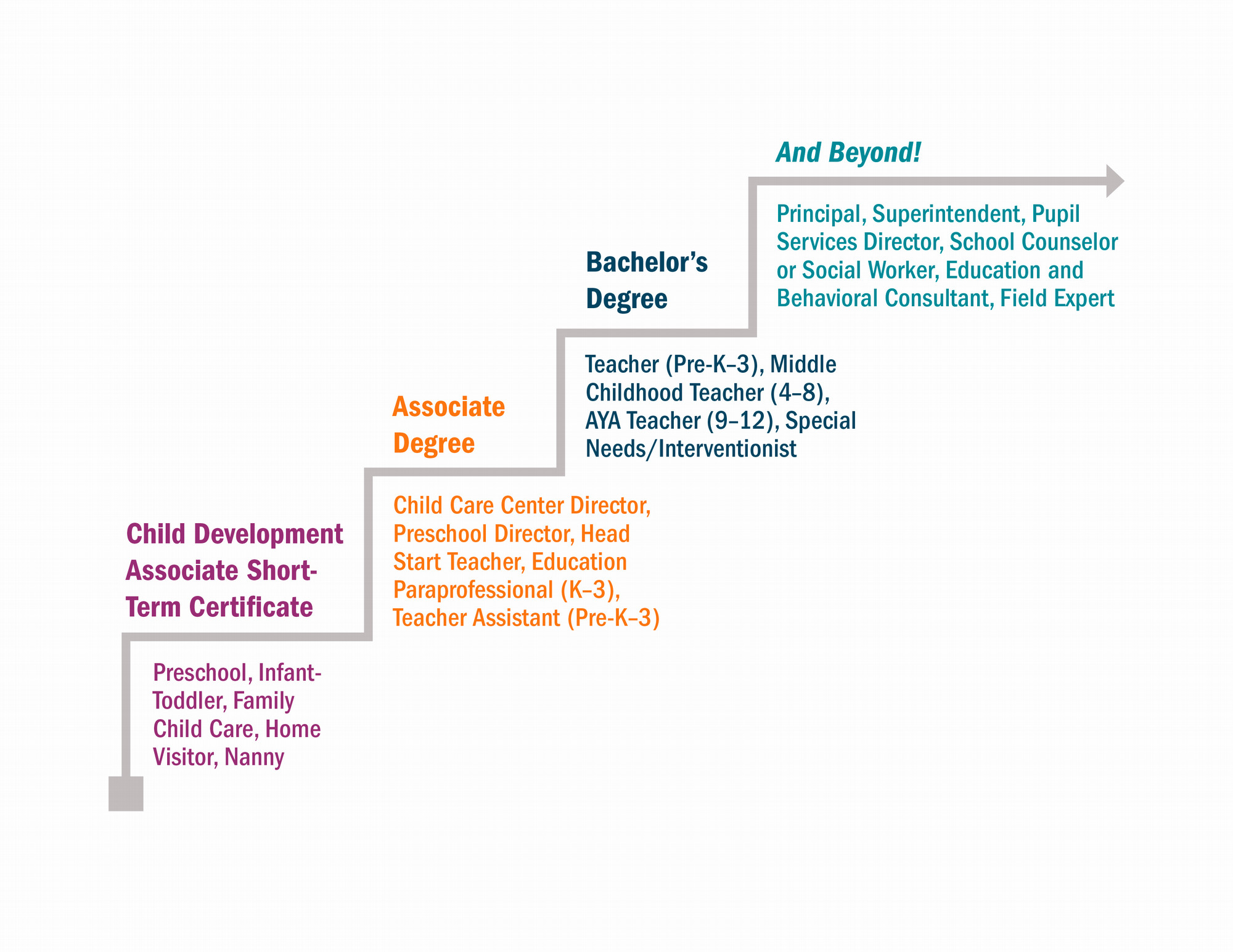
Credit: www.tri-c.edu
Frequently Asked Questions
What Degree Is Best For Early Childhood Education?
A bachelor’s degree in early childhood education is best for aspiring educators in this field.
Which Course Is Best For Early Childhood Education?
The best course for early childhood education is a Bachelor’s in Early Childhood Education. This program provides a comprehensive understanding of child development and effective teaching strategies. It also includes practical experience through internships and hands-on learning opportunities.
What Is The Highest Paying Job In Early Childhood Education?
The highest paying job in early childhood education is a preschool or daycare director.
Is Early Childhood Degree Hard?
Yes, an early childhood degree can be challenging. It requires a lot of dedication, hard work, and patience. However, with the right mindset, passion, and commitment, it can be a rewarding and fulfilling career path.
Conclusion
A degree in early childhood education prepares individuals for a rewarding career in shaping young minds. The field offers diverse opportunities and the chance to make a positive impact on children’s development. With a strong foundation in child development and educational strategies, graduates are equipped to create a nurturing and enriching learning environment for young learners.
Pursuing a degree in early childhood education opens doors to a fulfilling and meaningful career dedicated to the growth and well-being of the next generation.
Lorem Ipsum is simply dummy text of the printing and typesetting industry. Lorem Ipsum has been the industry’s standard dummy text ever since the 1500s, when an unknown printer took a galley of type and scrambled it to make a type specimen book.



